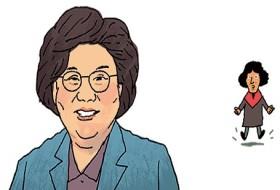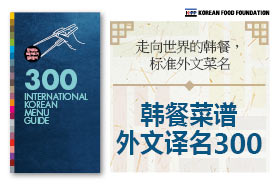.jpg)
- ▲ 美国候任总统特朗普。/ 法新社、韩联社
尽管存在这些问题,但希望还是存在的,这就是现在的韩美同盟比任何时候都强大。韩国会不顾目前政治的动荡,发挥恢复力克服现状。在特朗普第二任期政府即将上台的今天,韩国前进的道路是与美国保持紧密的伙伴关系。韩美日联盟、芯片供应链的复原力、造船业的伙伴关系等是直接关系到两国利益的主要待解决议题。面对在韩国政治的不确定性之下扩大影响力的中国,韩美之间也迫切需要开展战略合作。
应对中国的资源武器化就是其中的代表议题。虽然这并非近期才存在的问题,但显然是最近美国和韩国面临的重要挑战之一。中国已经主导了全球金属市场。在此基础上,中国政府从上月开始对美国实施主要金属的禁售措施。禁止销售的金属是人工智能(AI)、芯片、航空航天产业等未来技术开发的必备元素。中国的行动包含了将全球供应链置于自身影响力之下的意图。
专家一致认为,中国试图突破出口禁令,掌握其他国家的核心资源,还发现了中国实施海外基地化的迹象。中国已经垄断了最近几年在印度尼西亚生产的镍原矿的冶炼和加工过程。
镍是二次电池正极材料的核心材料。中国主导了2022年的价格暴跌,从而控制了镍的供应链。全球的镍业务面临严重危机,遭受最大的打击是澳大利亚。价格崩溃导致许多家镍矿山关闭,相关企业纷纷倒闭,失业人数剧增。此后,澳大利亚政府通过修改法律,采取了加强对包括镍在内的各种资源市场外商投资监控的应对措施。此举是为了削弱中国试图进一步掌握制造电动汽车电池所必需的镍和锂等重要矿物市场的企图。
韩国也不例外。韩国的锌冶炼产能仅次于中国,排名世界第二。就是说,这是对中国非常有吸引力的目标,暴露在了中国资源武器化战略之下。最近,一家私募基金开始收购世界炼锌第一企业高丽锌业公司。该私募基金的主要投资者(LP)之一包括中国投资公司(CIC),因此最近美国担心,如果进行出售,核心矿物的技术可能广泛转移到中国。进行收购的基金的立场是“不会向中国出售(高丽锌业)”。但如果出售成为现实,美国的担忧会进一步扩大。观察认为,特朗普不会坐视中国的资源武器化战略。他们认为,这不仅会威胁美国和同盟国的经济安全,而且会造成技术上的从属关系,因此不能坐视不管。
新上台的美国政府将在中国资源武器化的严峻挑战下,期待与韩国政府的紧密合作。这个问题直接关系到韩美同盟加强经济安全合作,所以不能“瞻前顾后”。因为此举可以保护两国的战略利益。韩国和美国想克服这些挑战,就必须构建新的供应链,减少对中国的依赖。同时,两国还应与澳大利亚、日本等其他国家合作,努力实现供应链的多元化,并提高矿物自给率。两国在保护韩国和美国国家利益的同时,为全球经济安全做出贡献的合作正处于紧要的时刻。
[以下为原文]
US and South Korea Must Jointly Counter China’s Resource Weaponization in Trump 2.0
Robert O’Brien, 27th US National Security Advisor (Sept 2019 – Jan 2021)
South Korea’s domestic challenges could lead to fractures in the US-Republic of Korea (ROK) alliance and harm our common interests. A so-called ‘Korea Passing,’ whereby international isolation of Korea with no elected leader available to directly engage with incoming President Trump, could be devastating.
Despite these challenges, there is reason for optimism. The US-ROK alliance stands stronger than ever. Anchored in shared values of liberal democracy, the rule of law, and market economies, the two nations continue to form the backbone of economic stability and security on the Korean peninsula through mutual trust and cooperation. The United States maintains unwavering confidence in the Korean people. Despite the current political turbulence, there is widespread belief that Korea will once again demonstrate resilience and overcome its challenges.
With the new Trump administration only days away from taking office, the path forward for Korea is with continued close partnership with the US. Key issues, including trilateral cooperation with Japan, semiconductor supply chain resilience, and shipbuilding industry partnerships, are critical to our mutual interests and ripe for close cooperation. Strategic and coordinated efforts will be essential in addressing China’s growing influence amid South Korea’s political uncertainties.
China’s weaponization of resources is a prime example of economic coercion that must be addressed by both Seoul and Washington. While not a new phenomenon, it has emerged as one of the most pressing challenges facing the United States and South Korea today. China already dominates the global metals market and, leveraging this position, imposed new export bans on critical metals to the U.S. last month.
These metals are essential for the development of future technologies, including artificial intelligence (AI), semiconductors, and the aerospace industry. This move reflects China’s strategic efforts to strengthen its economic dominance while exerting control over global supply chains. South Korea has already experienced the repercussions of such actions, suffering setbacks from China’s urea export restrictions in both 2021 and 2023.
What raises further concern are the underlying motives. Experts warn that China’s ambitions go beyond export bans, extending to the acquisition and control of critical resources abroad. Signs of foreign resource consolidation have already emerged. In recent years, China has virtually monopolized the refining and processing of nickel ore produced in Indonesia.
Nickel is a key material for the cathode materials used in secondary batteries. In 2022, China orchestrated a sharp drop in nickel prices to solidify its grip on the global supply chain. This price collapse pushed the global nickel industry into crisis, with Australia bearing the brunt of the impact. Many nickel mines were forced to shut down, leading to the bankruptcy of related firms and a surge in unemployment.
In response, the Australian government amended its laws to tighten foreign investment oversight in resource markets, including nickel. These measures were designed to counter China’s attempts to dominate critical mineral markets, such as lithium and nickel, which are indispensable for electric vehicle battery production.
South Korea is not immune to China’s resource weaponization strategy. As the world’s second-largest producer of refined zinc, following China, South Korea represents an attractive target and is highly exposed to Beijing’s economic leverage. Recently, a private equity firm moved to acquire Korea Zinc, the world’s leading refined zinc producer. The fact that China Investment Corporation (CIC) is one of its lead investors (LPs) raised concerns in the US that a sale would risk a widespread transfer of key minerals and technologies to China. While the private equity fund behind the acquisition has maintained that ‘Korea Zinc will not be sold to China,’ US concerns would be heightened if a transfer were to take place.
President Trump is unlikely to remain passive in the face of China’s resource weaponization tactics. China’s attempt to control global supply chains by weaponizing critical metals and minerals will likely face strong US opposition. Such actions threaten the economic security of the United States and its allies and pose the risk of technological dependence—something the Trump administration is unlikely to tolerate.
The incoming administration will expect close cooperation from South Korea in confronting this pressing challenge. Strengthening economic security ties within the US-ROK alliance is a matter of urgency. There is no room for hesitation, this is about safeguarding the strategic interests of both nations.
To tackle these challenges, South Korea and the United States must work together to build alternative supply chains and reduce dependence on China. At the same time, both countries should collaborate with additional partners, including Australia, Japan, and others, to diversify supply chains and improve mineral self-sufficiency. Reinforced US-ROK cooperation is now more critical than ever—not only to protect mutual interests but also to bolster global economic and security stability.



.jpg)
.jpg)




.jpg)
.jpg)
.jpg)
.jpg)
.jpg)
